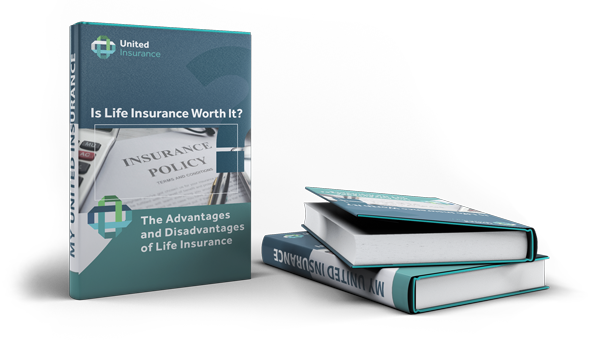
When it comes to life insurance, there are two main types: term and whole. In this blog post, we will discuss the benefits of term life insurance policies. Term life policies are perfect for people who want coverage for a specific period of time (for example, 20 years). They are also much more affordable than whole life policies. Here are some of the reasons why you should consider purchasing a term life policy:
Why Life Insurance?
Most people choose to purchase life insurance for the peace of mind it provides. Knowing that you and your family are taken care of financially in the event of your death can give you a great sense of security. Life insurance can also be used as a financial tool. For example, you can use it to pay off debts or fund your child’s education.

Benefits of Term Life Insurance
As we mentioned above, term life insurance is more affordable than whole life insurance. This is because it does not build cash value like whole life policies do. Term life policies also offer flexible terms, so you can choose the length of coverage that best suits your needs. For example, you can choose a 20-year term if you only need coverage until your children are grown.
Another benefit of term life insurance is that it is easier to qualify for than whole life insurance. This is because term life policies do not require a medical exam. So, if you have a pre-existing medical condition, you may still be able to qualify for coverage.
Who Needs Life Insurance?
Just about everyone can benefit from having life insurance. If you have dependents, life insurance can help to ensure that they are taken care of financially in the event of your death. Even if you don’t have dependents, life insurance can be used to cover final expenses, such as funeral costs and outstanding debts.
Do You Get Money Back At The End of The Term?
So let’s say you get term life insurance. You might be wondering what happens if you outlive the term length of your policy. Do you get your money back at the end of the term?
Once your term length is up, coverage either ends or can be extended (albeit at a higher premium). Your family only gets money from the life insurance company if you die. That’s why not seeing that money again is the best-case scenario: it means you’re still alive. Like car insurance or health insurance, you’re paying for peace of mind in case something does go wrong.
Return of Premium Life Insurance
Return of premium (ROP) life insurance works exactly as the name indicates: as long as the insured outlives the initial term length, the life insurance company returns most or all of your premiums paid.
So why don’t we hear more rave reviews about this coverage option? According to insurance industry research group LIMRA’s 2017 U.S. Retail Individual Life Insurance Sales Survey, as of March 8, 2018, ROP coverage represents only 2% of all annual term life insurance sales.
While return of premium is seemingly a win-win, that coverage comes at a price. Specifically, a higher premium. Typically, people choose a traditional term life insurance policy over a return of premium policy because the premium rates are lower, and they’d rather keep the extra money in their pockets each month. With return of premium life insurance, you’re essentially holding a portion of your savings with a life insurance company (in an interest-free account) instead of using the money as you see fit over the years.
Term Vs Whole Life
Learning about term life insurance begs the question, “What other types of life insurance are out there?” There’s term life, whole life, indexed universal, guaranteed issue, accidental death…
The list goes on. However, there are two types of life insurance that you really need to understand: term and permanent.
Unlike a term life policy, permanent or whole life insurance coverage lasts for the rest of your life and has a cash value component that grows over time as you pay premiums. Permanent coverage can be at least 10 times more expensive than term, with two common types of permanent coverage being whole and universal life.

Bottom Line
Ultimately, the type of life insurance you choose should be based on your specific needs and financial situation. If you’re looking for the most affordable option with the flexibility to choose your coverage period. Give us a call and we can put you in a policy that best fits your needs.
